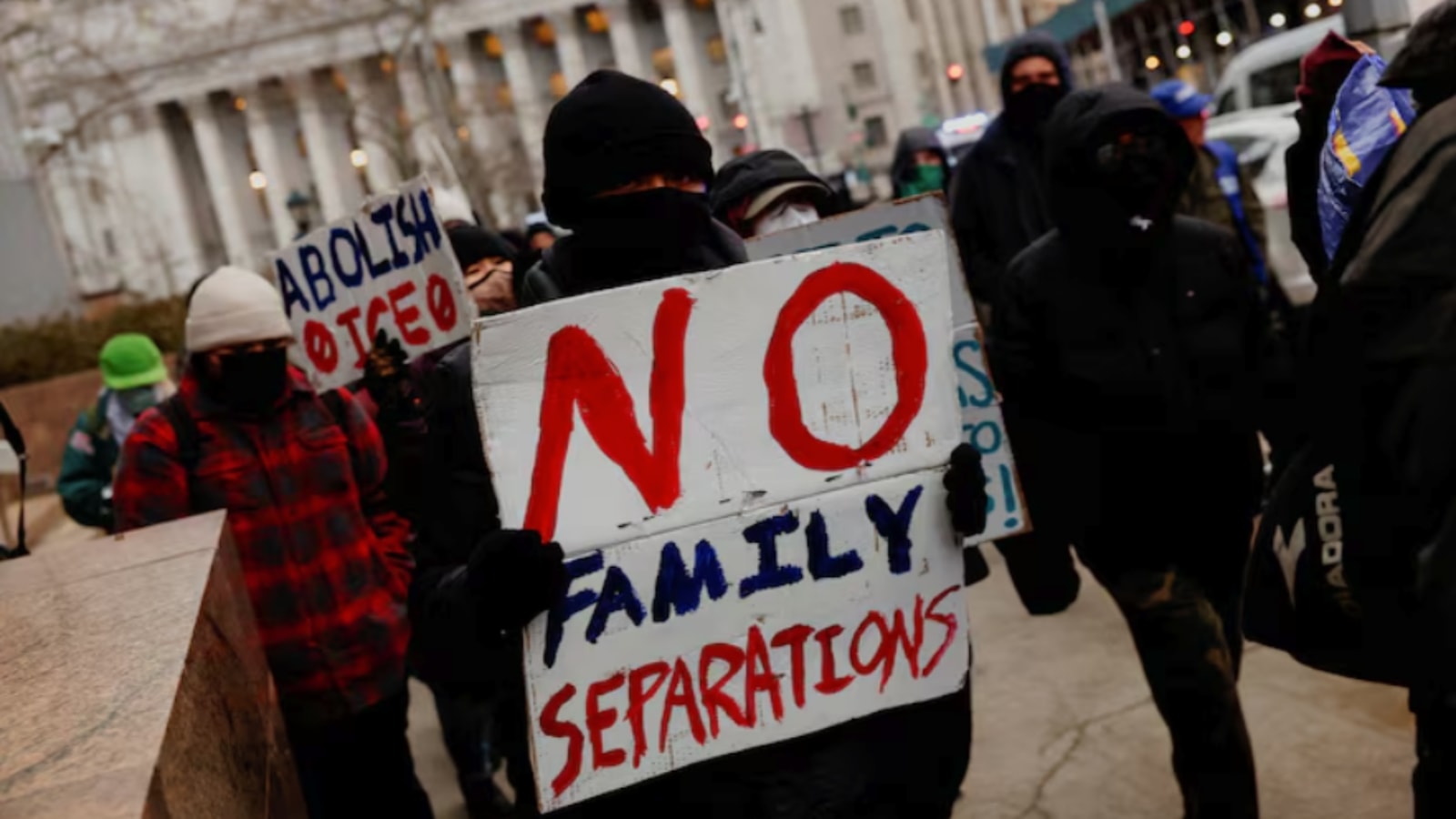The Trump administration is moving to deport migrant children more quickly by asking them if they want to voluntarily leave the United States — a major break from years of protocol that experts say could endanger some of the most vulnerable people in the immigration system.
Previously, when unaccompanied children (those who crossed the US border without a parent or legal guardian) were picked up by immigration authorities, American law required that they be transferred to the Department of Health and Human Services (HHS) within 72 hours — not deported right away. HHS would then typically house them in a shelter temporarily or place them with vetted family members already living in the US while their immigration case moved through court.
Story continues below this ad
Only children from Mexico or Canada — America’s two neighbouring countries — were eligible for voluntary return (or self-deportation) right at the border. And even in those cases, it had to be determined that the child was not in danger, and that they understood their decision.
Under the new policy, children aged 14 to 17 from any country can now be asked if they want to ‘voluntarily’ return home. If they say yes, they are handed over to ICE for deportation. If they say no, or if ICE doesn’t act within 72 hours, the child is then referred to HHS custody, as was the original process.
So, the real change is who gets asked and how early in the process it happens.
“This is a long-standing practice that was used by previous administrations to prioritise getting children back to the safety of a parent or legal guardian in their home country,” a Homeland Security spokesperson claimed to CNN. Citing the Trafficking Victims Protection Reauthorisation Act (TVPRA), a law first passed in 2000, the official argued that the only change is that the policy now applies to more countries.
Story continues below this ad
But legal experts and former officials say this is a misreading of the law, as the TVPRA was designed to safeguard children, especially from non-contiguous countries, by giving them time and legal support before decisions about deportation are made.
“They are not competent to make their own decisions,” a former Homeland Security official told CNN, especially without proper guidance, legal screening or a complte understanding of the risks involved.
“A child is in no position to understand the consequences of self-deporting, particularly without the guidance of an attorney,” argues Neha Desai, managing director of Children’s Human Rights at the National Center for Youth Law.
Story continues below this ad
“Unaccompanied children are being used as pawns in an effort to deport as many people as possible, regardless of the human toll it takes on the most vulnerable members of our community,” she told CNN.
As she implies, the broader context behind the move is Trump’s intensified push to reduce immigration.
His administration has increasingly leaned on so-called self-deportations as part of a wider crackdown. Policies now include nationwide expedited removals, ending humanitarian parole, resuming border wall construction, and involving local police in enforcement. Visa rules have been tightened, and refugee programs have been cut, impacting both legal and illegal immigrants.
CNN has also previously reported that legal aid for children is being reduced, their court cases are being rushed, and some are even re-entering government custody because their family sponsors are being targeted for enforcement. Some families, including those with a mix of legal and undocumented members, have opted to leave rather than risk ICE raids or arrests.
Story continues below this ad
Trump officials have tried to justify the shift by pointing to the high number of unaccompanied children who crossed the southern border during the Biden administration, claiming that many of them are now missing or in danger. However, according to a 2024 report from the US Government Accountability Office, approximately 85 per cent of unaccompanied children were successfully placed with sponsors, and most remained in contact with caseworkers.
“We are witnessing a fundamental unraveling of protections for this vulnerable population — a population that a bipartisan Congress sought to protect years ago through landmark federal legislation,” Desai said.
Yet for his base, Trump’s policies are exactly what he promised. A reduction in immigration so that social service benefits and job opportunities prioritise natural born Americans.
With inputs from CNN

